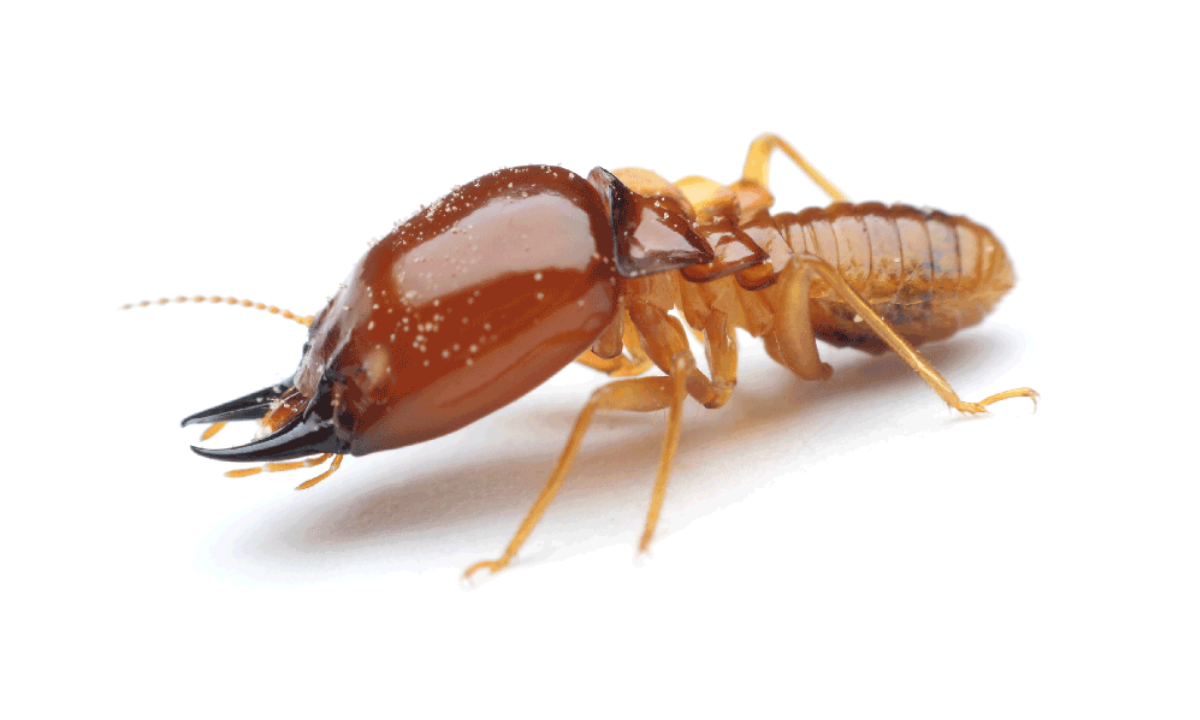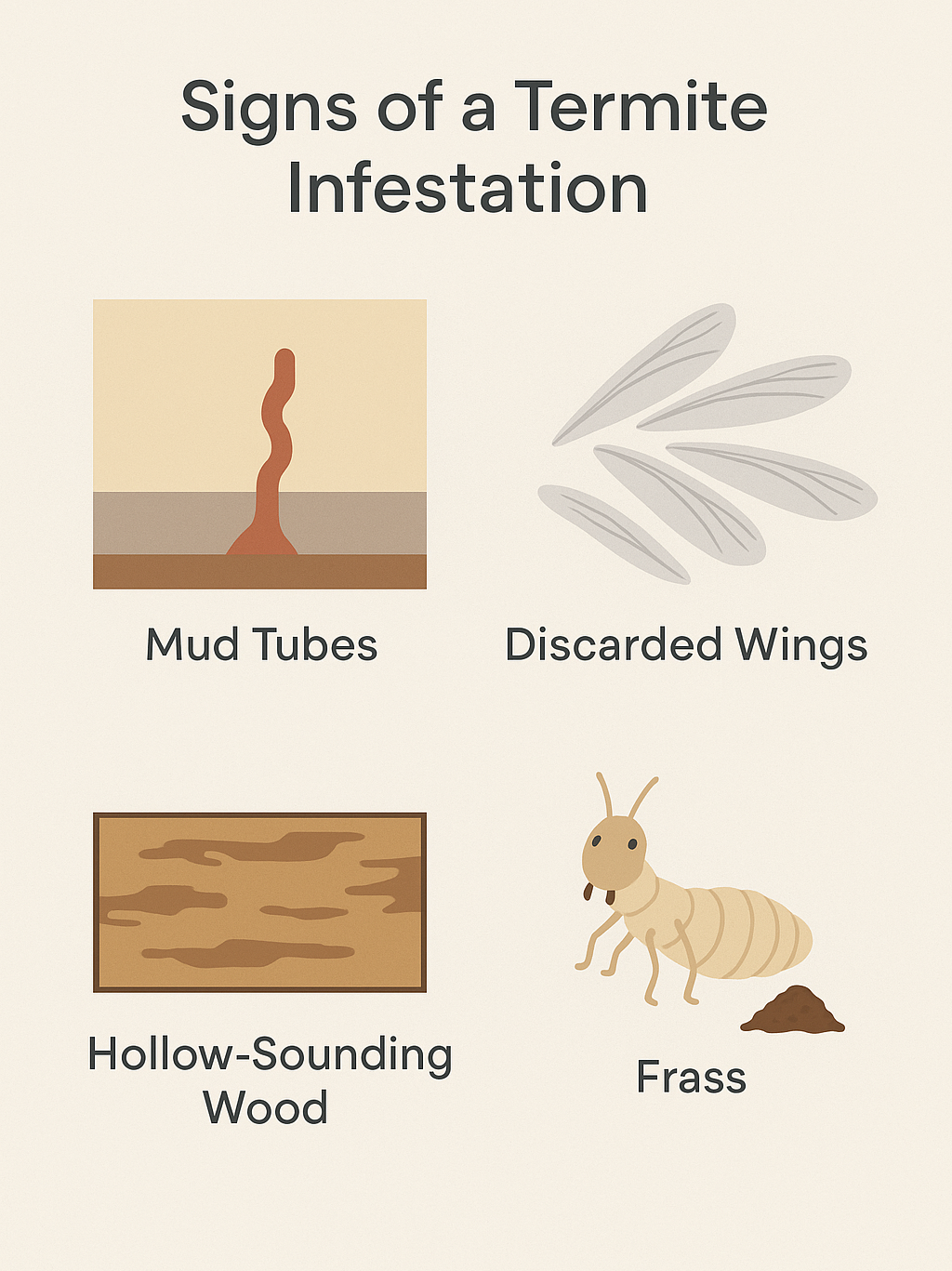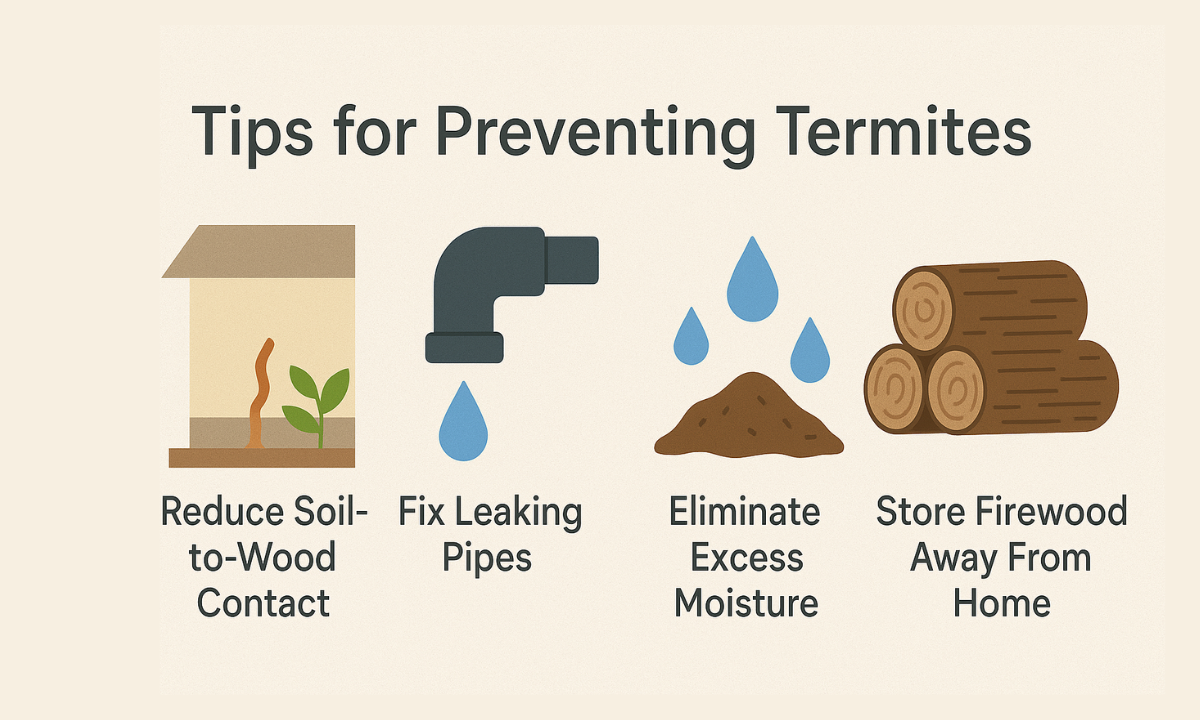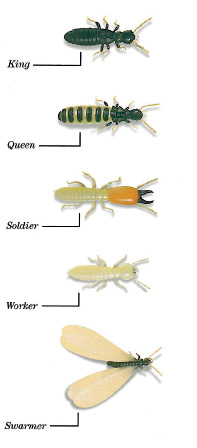Termites

Termites in Massachusetts
Termites are often called “silent destroyers,” and for good reason. These tiny, wood-consuming insects can compromise the very structure of your home without giving any immediate sign that they’re there. For homeowners in Massachusetts, particularly throughout Cape Cod and Plymouth County, termite infestations are a very real and costly threat. Unlike seasonal pests that come and go, termites work year-round, feeding on wood and cellulose-based materials hidden within your home’s framework. By the time the damage is visible, the infestation is often extensive.
At ServPest, we understand the unique challenges termites present to Massachusetts homeowners. Our team has spent years helping residents in towns like Bourne, Falmouth, Sandwich, and Plymouth protect their homes from these destructive insects. By understanding how termites behave, what signs to look for, and how to prevent infestations, you can take proactive steps to safeguard your property.
Understanding Termites and Why They’re a Problem in Massachusetts
In Massachusetts, the primary culprit is the Eastern Subterranean Termite. This species builds massive colonies underground and uses an intricate network of tunnels to reach food sources, usually the wooden structures of homes. The sandy, moisture-rich soils of Cape Cod provide the perfect environment for these pests to thrive. The mild, humid climate combined with wooden construction makes neighborhoods across Barnstable, Yarmouth, and other coastal towns highly susceptible to infestations.
Termites live in highly organized colonies, consisting of workers, soldiers, and reproductive members. The workers are the ones responsible for the damage to your home, as they tirelessly forage and consume cellulose found in wood, paper, and other plant-based materials. Soldiers defend the colony, while the reproductives, known as alates, emerge during swarming season to create new colonies. This swarming typically occurs in the spring, often after a warm rain, and can serve as one of the first visible signs that termites are nearby. However, even outside of swarm season, the colony remains active, feeding silently and expanding beneath the surface.
How to Identify a Termite Infestation
One of the reasons termites are so dangerous is that they are experts at staying hidden. They can feed on wood for months or even years before you notice any visible damage. That’s why early detection is key. While termites themselves are small, pale insects with straight antennae and wings of equal length, you are more likely to spot the signs of their presence than the insects themselves.
Some homeowners first notice mud tubes: thin, dirt-like tunnels running along foundation walls or crawl spaces. These tubes are used by termites to travel safely between their colony and food sources while maintaining the moisture they need to survive. Another common sign is finding discarded wings near windowsills, doors, or other entry points. These wings are left behind by swarmers after they find a place to start a new colony.
Other warning signs include wood that sounds hollow when tapped, small piles of frass (termite droppings that resemble sawdust), blistering or peeling paint that seems to have no explanation, and in severe cases, visible damage to flooring, beams, or walls. Because so much of their activity takes place out of sight, it’s important to have regular inspections performed by professionals who know where and how to look for them.

The Hidden Damage Termites Cause
Termite damage is not only costly but also dangerous. These pests can compromise the integrity of your home’s structure, weakening floor joists, support beams, walls, and even ceilings. As termites feed, they hollow out wooden components, often leaving only a thin outer layer intact. Over time, this can lead to sagging floors, warped doors and windows, and in extreme cases, structural collapse.
The financial impact is significant as well. In the United States, termites cause billions of dollars in property damage each year, and because this damage is considered preventable, most homeowners’ insurance policies do not cover it. This makes prevention and early treatment essential. For Massachusetts homeowners, especially those in high-risk areas like Cape Cod, staying ahead of termites isn’t optional, it’s a necessity.
Why Termites Thrive on Cape Cod and Surrounding Areas
You might be wondering why termite problems are so prevalent in this part of the country. The answer lies in the environment. Subterranean termites prefer warm, moist conditions, and the coastal climate of Massachusetts provides exactly that. The sandy soils found throughout Cape Cod also allow termites to build their underground colonies with ease, giving them direct access to the wooden structures of homes.
Swarming typically occurs between April and June, when winged termites leave their nests to establish new colonies. This is often when homeowners first notice them, but it’s important to understand that swarming is just one stage of their lifecycle. The colony itself is active throughout the year, feeding continuously regardless of the season.
How to Prevent Termite Infestations
While it’s impossible to completely eliminate the risk of termites, there are several steps you can take to make your home less inviting to them. One of the most important things you can do is reduce moisture around your home. Termites are attracted to damp environments, so repairing leaks, ensuring proper drainage, and ventilating crawl spaces can significantly reduce your risk.
It’s also wise to keep firewood, mulch, and other wood debris away from your foundation. Any wooden material that comes into contact with soil can act as a bridge for termites to access your home. Sealing cracks in your foundation and around utility entry points can also make it more difficult for termites to find a way in.
Finally, scheduling annual termite inspections with a trusted pest control provider is the best way to catch infestations early. Professional inspections can identify vulnerabilities you might miss and provide peace of mind that your home is protected.

Professional Termite Control: Why ServPest Is the Right Choice
When it comes to termites, DIY treatments are rarely effective. While store-bought sprays or bait stations may kill a few termites on the surface, they do not reach the colony hidden underground. True termite control requires a targeted approach that eliminates the entire colony, including the queen.
ServPest uses advanced treatment methods designed specifically for the conditions in Massachusetts. Our process starts with a comprehensive inspection to assess the extent of the infestation and identify the best treatment strategy. From there, we implement solutions such as liquid termiticides that create a protective barrier around your home, baiting systems that eliminate the colony from within, and wood treatments to stop further damage. We also provide preventive measures to ensure your home stays termite-free long after the initial treatment.
Our team has years of experience protecting homes in Barnstable, Plymouth, Mashpee, and surrounding Cape Cod communities. When you choose ServPest, you’re choosing local experts who understand the unique challenges of termite control in this area.
If you suspect termites in your home, don’t wait. Early action saves money, time, and stress. Schedule your termite inspection with ServPest today.

Frequently Asked Questions About Termites
Yes. Termites are highly prevalent in coastal Massachusetts due to the favorable environment. The combination of sandy soil, humidity, and wooden structures creates perfect conditions for their colonies.
While termites remain active year-round, swarming typically occurs during the spring and early summer. However, just because you don’t see them doesn’t mean they’re not there—colonies often continue feeding unnoticed throughout the colder months.
Pest control experts use specialized methods, including bait systems, liquid treatments, and wood applications, to not only kill visible termites but also eradicate the entire colony. This is something DIY products cannot achieve.
It’s recommended to have your home inspected annually, especially if you live in an area known for termite activity. Regular inspections are the most effective way to catch infestations before they cause serious damage
Unfortunately, most policies do not cover termite damage. This is why prevention and early treatment are so important for protecting your investment.
Protect Your Home with ServPest
Barnstable County, MA
Plymouth County, MA
Mon - Fri 7:00 am - 7:00 pm
Sat 8:00 am - 3:00 pm
Sun: Closed
Operation Hours: Mon-Sat: 7am - 7pm
Office: (508) 815-4842
Alternate: (508) 815-3114
info@servpest.com

